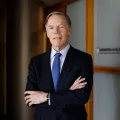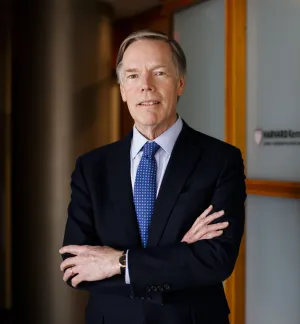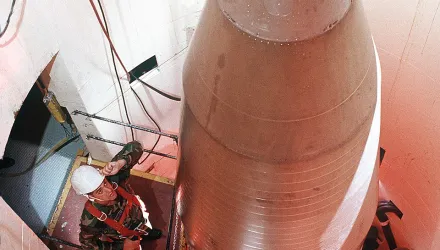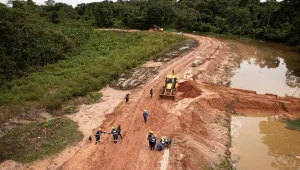Testimony before the Senate Armed Services Committee
Senate Armed Services Committee Hearing on the North Atlantic Treaty Organization, Russia, and European Security
July 7, 2016
Nicholas Burns
Former U.S. Ambassador to NATO
Chairman McCain, Senator Reed, members of the committee. Thank you for the opportunity to testify today on our vital NATO alliance.
Twenty-five years ago this autumn, we in NATO believed that Europe’s historic demons of war and division had finally been vanquished. With the collapse of communism, the unification of Germany in NATO and end of the USSR, President George H.W. Bush proclaimed a new era—of a Europe “Whole, Free and at Peace.”
It was one of the most significant foreign policy accomplishments in American history.
Twenty-five years later, General Jim Jones and I believe Europe and the U.S. are facing the greatest threat to the peace since the end of the Cold War.
Specifically, we are encountering a dramatically changed and perilous security environment in Europe produced by four interlocking challenges.
The first is Vladimir Putin’s aggression—his division of Georgia and Ukraine; his annexation of Crimea; his threats to the Baltic States and his military’s harassment of U.S. forces in international airspace and international waters.
The second challenge is a dramatically weakening and potentially fractured European Union, now exacerbated by the possible departure of the United Kingdom.
The third is the tsunami of violence spreading from the Levant and North Africa into Europe itself.
The fourth is uncertain and sometimes seemingly unconfident European and American leadership in the face of these combined challenges.
It would be an exaggeration to say that we are returning to the Cold War or that our dream of a united, peaceful Europe is no longer attainable.
But, these are daunting risks requiring a rededication to one of our most enduring bipartisan objectives—a secure, durable, strengthened American link to Europe’s future and Europe’s success.
That is why the NATO Alliance remains so important to America.
And that is why such a changed security situation requires a significant and bold response by the United States and its allies.
The Atlantic Council report that General Jones and I chaired makes many recommendations.
We believe NATO should station military forces on a permanent basis in Poland and the Baltic States, in the Black Sea region and in the Arctic. This will make NATO’s strategic deterrence and our Article V commitment real, unambiguous and unyielding to Putin. This is the best way to ensure the Peace in Europe.
We may need to hold the line against Putin in Eastern Europe for some time to come. That is why we must also maintain European, American and Canadian sanctions against Putin until he has met all the conditions in the Minsk agreement on Ukraine.
To let him off the hook, as some European leaders are already advocating, would let him get away with larceny and aggression not seen in Europe in seventy years.
That is also why the U.S. should extend lethal military assistance to Ukraine so that it can defend itself.
We need furthermore to push our NATO allies to rebuild their militaries and spend much more on their defense given this altered strategic environment.
It is unacceptable that these wealthy countries are nearly all punching below their weight—only five of the twenty-eight allies are spending above NATO’s minimum of two percent of GDP on defense.
We need, especially, a stronger Germany to help lead NATO in this new era. We need a stronger United Kingdom, France, Italy, Spain and Poland to enable NATO to meet these new threats.
My final point is that our most complex challenge may come from within the NATO countries themselves. Our strongest link is that we are all democracies. But, many of us, including the United States, are confronting a wave of isolationist sentiment and ugly extremism in our domestic political debates.
NATO will need strong, unflinching American leadership to cope with these challenges.
The next American President will have the opportunity and the obligation to provide such leadership to weather these storms.
An early NATO summit in 2017 could confirm the decision to keep our forces in Afghanistan, to train the militaries of moderate Arab states, to increase our national defense budgets and to deter Putin.
Most importantly, the next President must win the battle for public support here at home within the U.S. itself. That battle should focus on what we know to be true—that our Alliances strengthen and not weaken us. That American isolation on the left and right is not the answer to these problems.
And that NATO remains not only relevant but essential in this changed world where American leadership is so critical and so much in demand.
WATCH: View Hearing recording
Burns, Nicholas. “North Atlantic Treaty Organization, Russia, and European Security.” July 7, 2016





